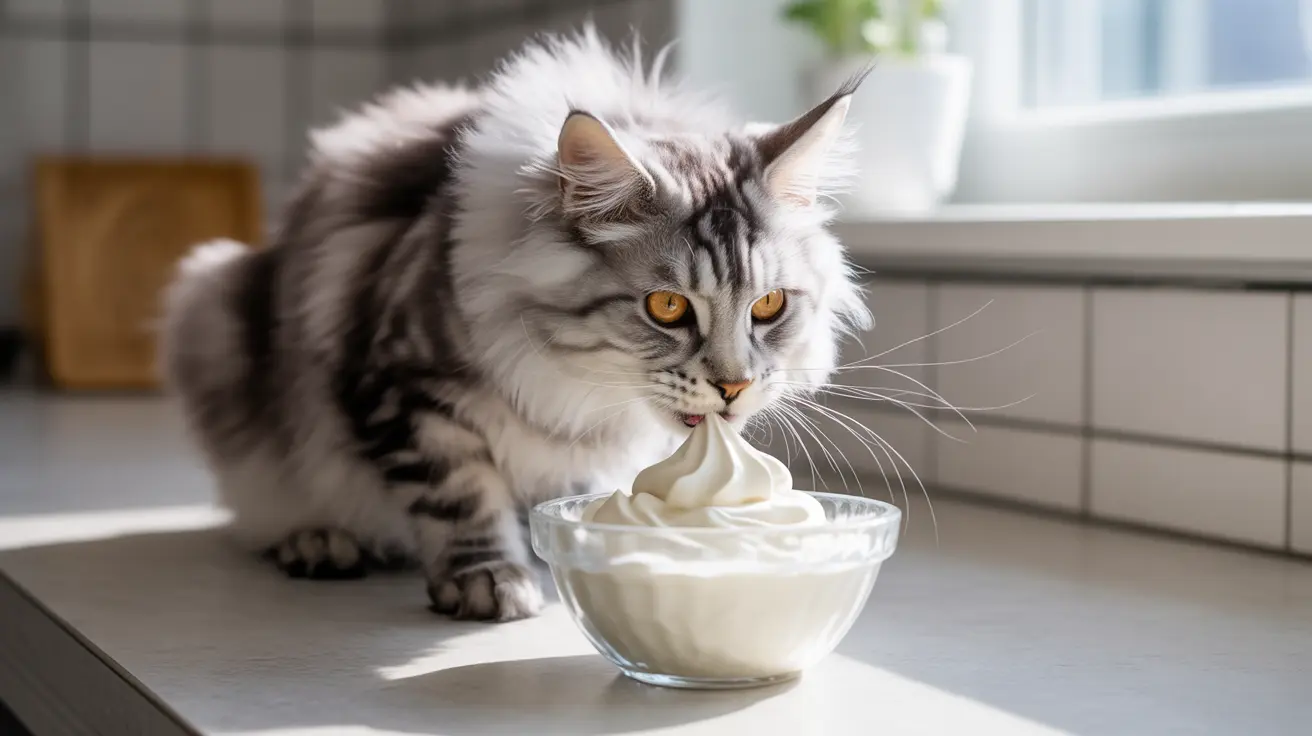Understanding Cats and Lactose Intolerance
Most adult cats are lactose intolerant, which means they lack the necessary enzyme (lactase) to properly digest dairy products. While kittens can digest their mother's milk thanks to natural lactase production, this ability typically diminishes by eight weeks of age, leaving most adult cats unable to process dairy effectively.
This biological fact contradicts the popular image of cats lapping up milk or cream, which has been perpetuated by media and folklore rather than veterinary science.
The Hidden Dangers of Whipped Cream for Cats
Whipped cream poses several specific risks to cats:
- High lactose content that can trigger digestive issues
- Excessive sugar and fat that can contribute to obesity
- Potential artificial sweeteners or additives that may be toxic
- Empty calories that provide no nutritional value
- Risk of developing diabetes with regular consumption
Immediate Health Impacts
When cats consume whipped cream, they may experience various uncomfortable symptoms:
- Diarrhea
- Vomiting
- Stomach upset
- Gas and bloating
- Dehydration
- General digestive discomfort
Safe Treats and Alternatives
Instead of whipped cream, consider these veterinarian-approved alternatives:
- Commercial cat treats specifically formulated for felines
- Small pieces of cooked lean meat or fish
- Cat-specific "milk" products that are lactose-free
- Tiny amounts of plain, cooked pumpkin or carrots
- Commercial cat grass or catnip
When to Contact Your Veterinarian
If your cat has consumed whipped cream and shows any of these severe symptoms, contact your veterinarian immediately:
- Persistent vomiting or diarrhea
- Signs of dehydration
- Lethargy or unusual behavior
- Loss of appetite
- Visible discomfort or distress
Frequently Asked Questions
Can cats safely eat whipped cream, or is it harmful to their health?
While not toxic, whipped cream is harmful to cats' health due to their lactose intolerance and the high sugar and fat content. It can cause digestive issues and contribute to obesity and diabetes.
Why are most adult cats lactose intolerant, and how does this affect feeding them dairy products like whipped cream?
Adult cats lose the ability to produce lactase, the enzyme that breaks down lactose, after weaning. This makes them unable to properly digest dairy products, leading to digestive upset when consuming items like whipped cream.
What symptoms should I watch for if my cat accidentally consumes whipped cream?
Watch for signs of digestive distress including vomiting, diarrhea, bloating, gas, and lethargy. If symptoms are severe or persist, consult your veterinarian.
Are there any nutritional benefits to giving whipped cream to cats, or should it be avoided entirely?
Whipped cream offers no nutritional benefits for cats and should be avoided entirely. It contains empty calories and potentially harmful ingredients that can lead to health problems.
What are healthy and safe alternatives to whipped cream for treating my cat?
Safe alternatives include commercial cat treats, small pieces of cooked lean meat or fish, lactose-free cat milk, and specially formulated feline treats. Always consult your veterinarian before introducing new treats to your cat's diet.






